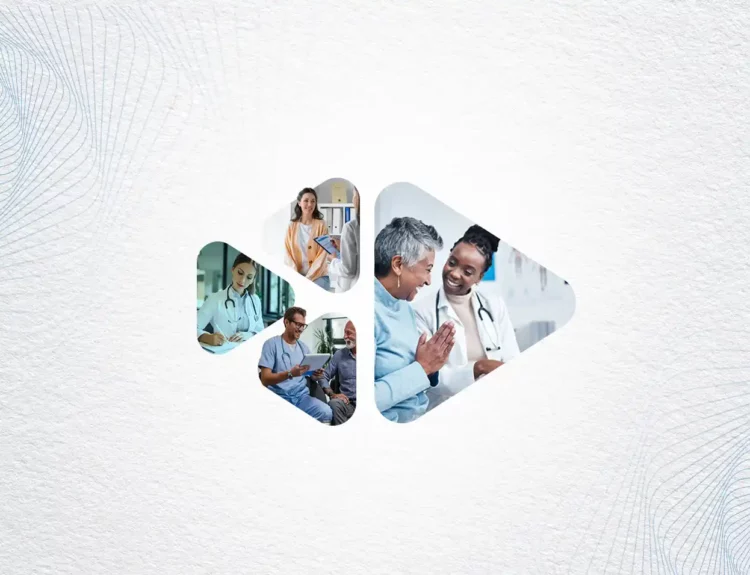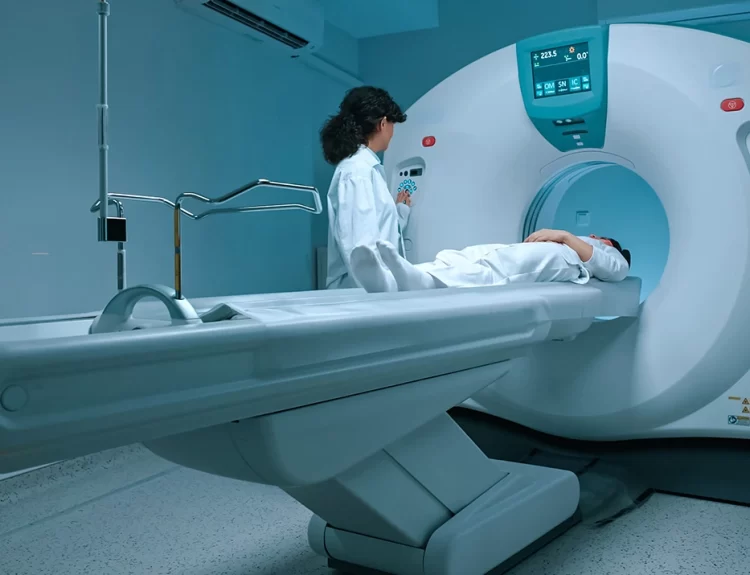The pace of innovation in oncology is truly remarkable, offering unprecedented hope in the face of one of the world’s most challenging diseases. Oncology drug development represents the pinnacle of scientific endeavor, yet translating this innovation into widespread clinical use remains a significant hurdle. Achieving true impact requires a holistic approach, meticulously collaborating scientific excellence with effective, insightful brand building. Executing this effectively demands deep insight into the information pathways trusted by oncology specialists.
Understanding the channels through which oncologists first gain brand awareness of new treatments is therefore critical for effective outreach.
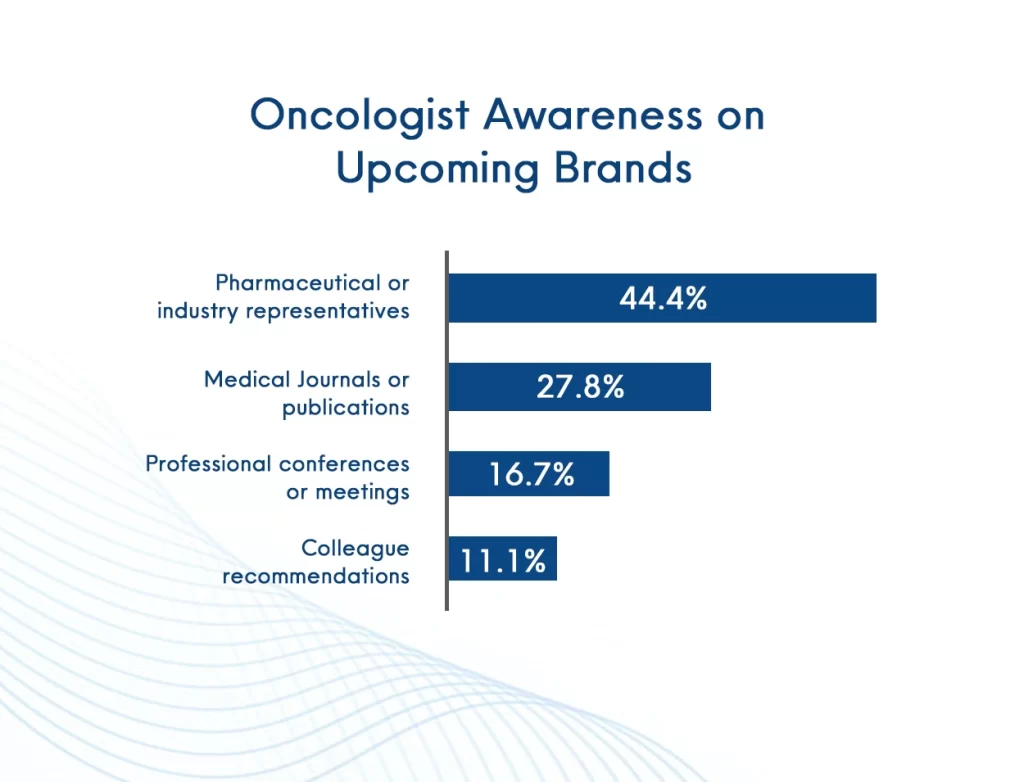
A recent study by Borderless Access, conducted through its proprietary healthcare panel of oncology specialists, sheds light on how oncologists discover emerging brands. The top source? Pharmaceutical or industry representatives — cited by 44.4% of respondents — highlighting the unmatched influence of direct, strategic outreach.
Medical journals (27.8%) and conferences (16.7%) followed, reinforcing the need for omnichannel visibility that blends scientific credibility with presence in key professional touchpoints.
Notably, their fellow oncologists’ recommendations ranked lowest (11.1%), revealing the highly specialized and independent decision-making culture in oncology — where trust is built more through data and presence than peer endorsements.
From Differentiation to Familiarity: Supporting Oncologists Beyond Awareness
While establishing initial brand awareness via channels like representatives, journals, and conferences is a vital first step, the journey towards influencing clinical practice runs deeper. Initial awareness, driven through these channels, doesn’t automatically translate into clear differentiation – a critical factor in treatment decisions.
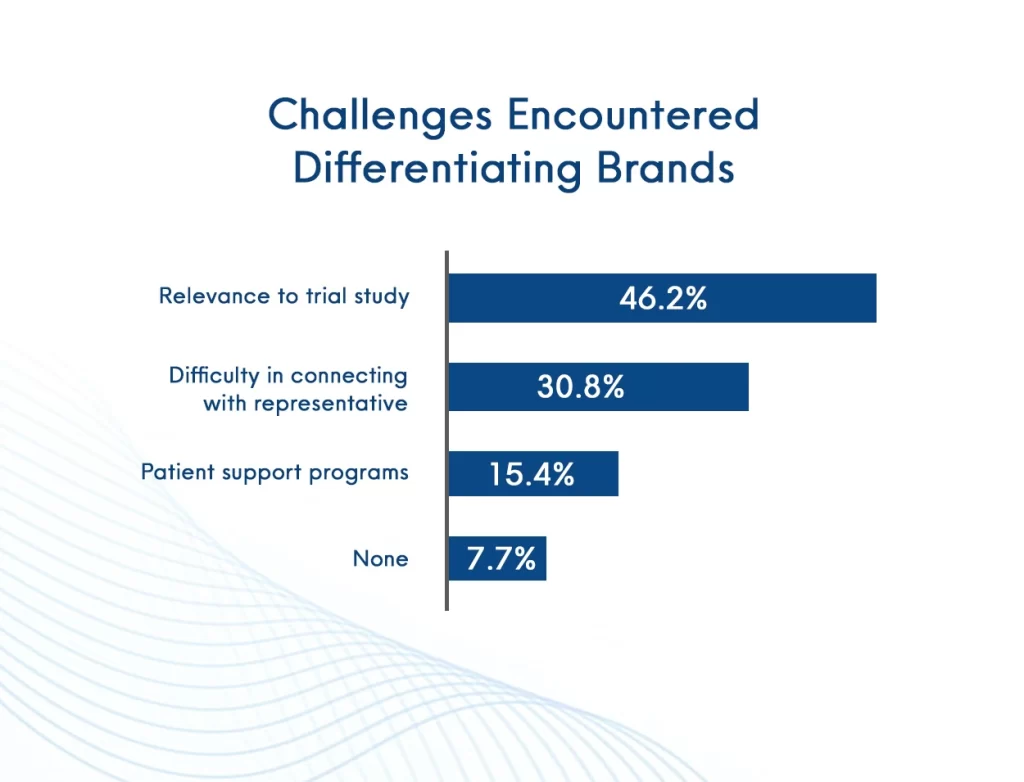
Our healthcare market research panel revealed in the recent study: nearly half (46%) of oncology specialists encounter challenges distinguishing between brands. This isn’t just a minor inconvenience; it impacts treatment evaluation. The primary driver? Difficulties related to accessing and potentially interpreting pivotal trial study data.
Adding another layer to this challenge is the high level of existing familiarity. A vast majority (79%) of oncologists consider themselves ‘very familiar’ with oncology brands. This presents a unique hurdle: in a crowded space where specialists already feel knowledgeable, how does a new or existing therapy distinctly communicate its value? High familiarity, our insights suggest, does not equate to clear differentiation.
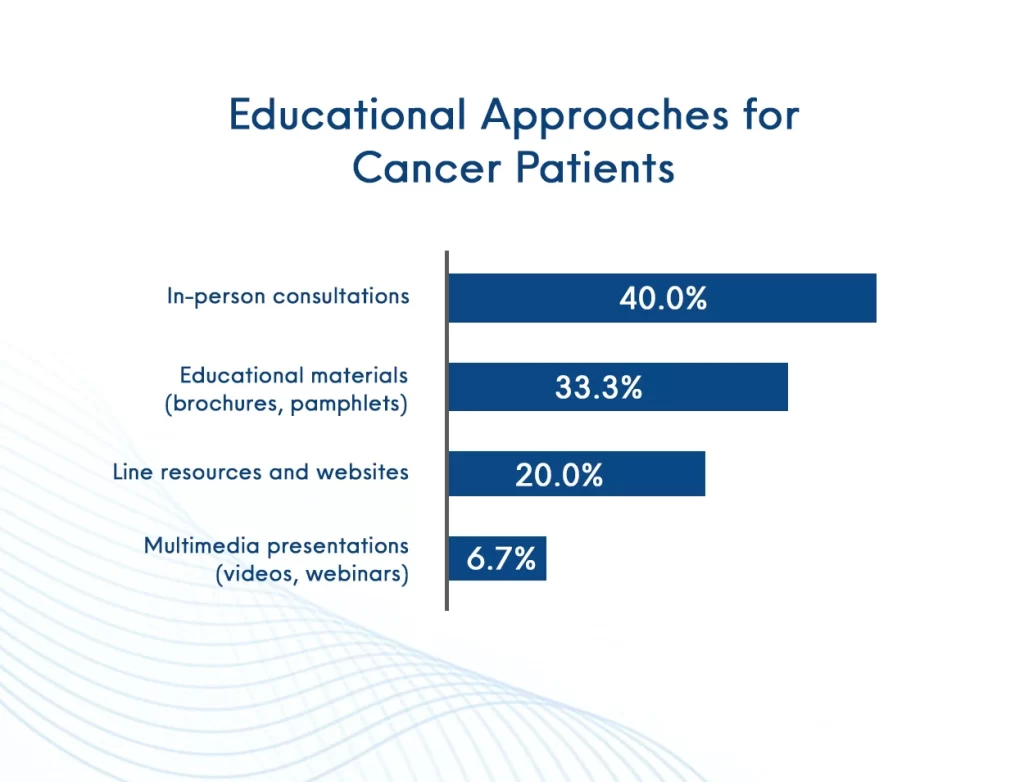
Moreover, oncology communication doesn’t stop with HCPs — supporting patient understanding is equally crucial. In a related finding, 40% of oncologists identified in-person consultations as the most effective educational approach for patients, followed closely by educational materials (33.3%).
This healthcare market insight opens the door for pharmaceutical companies to step in not just as product providers, but as partners in education — offering high-quality, patient-friendly resources that empower oncologists and reinforce brand value at the point of care.
Leveraging AI for Enhanced Brand Strategy and Optimum Awareness
Awareness is crucial — it gets a brand noticed. But in oncology, true drug success is built on more than visibility. It demands clarity of value, trust from physicians, and actionable engagement at every touchpoint. AI is now the key to achieving all three —
Transforming how brands inform, differentiate, and lead.
Reframing Physician Insights Through AI
In this fast-evolving market, physician insights can no longer be gathered passively or generalized broadly. AI is transforming this discipline — moving it from lagging indicators to real-time intelligence that drives sharper decisions and stronger engagement.
At the core is AI’s ability to analyze massive volumes of prescribing behavior — from drug choices and frequency to demographic patterns — and automatically segment physicians based on real-world behaviors. Whether through K-means or hierarchical clustering, these models uncover distinct physician personas that traditional research often misses.
AI enables nuanced trend identification, revealing early signals in drug class preferences, treatment adoption, or shifts in adherence behavior. These insights empower brand teams to not only react but proactively shape outreach strategies, content planning, and KOL engagement with confidence.
The benefits are measurable:
- Faster segmentation — what once took weeks is now possible in hours.
- Precise, actionable segments — targeting becomes sharper, messaging more resonant, and ROI more trackable.
This shift is more than technological — it’s strategic. And with Borderless Access’s proprietary hyper-segmented digital healthcare panel as the data foundation, brands gain access to real-time intelligence across 1.2M+ physicians, 1.63M+ patients, and 0.52M+ AHPs across 39 global markets. This scale, diversity, and depth power AI to deliver insight with intent — fast, focused, and future-ready.
AI as the New Lens on Patients and the Market
AI’s impact goes far beyond the physician lens. Today’s successful oncology brands understand that patient experience is brand experience. Through Natural Language Processing (NLP) and social listening, AI can analyze open-ended responses, social media, forums, and patient communities to decode sentiment, frustrations, unmet needs, and behavioral patterns.
These healthcare market insights are not abstract. They directly feed into brand strategy, patient education, and value communication. For instance, earlier findings revealed that oncologists still favor in-person consultations (40%) and educational materials (33.3%) as the primary methods for patient education. AI enables brands to take this a step further— by identifying the most common patient concerns and equipping HCPs with tailored, high-quality content that addresses those questions head-on. This positions the brand as a trusted partner in the care journey, not just a pharmaceutical entity.
AI also enables real-time monitoring of competitor activity, regulatory developments, and evolving patient preferences — helping brand teams not only stay relevant but outmaneuver in a saturated market.
Building Trust: Ethical AI as a Strategic Imperative
As AI’s role in medical communication expands, so does the responsibility that comes with it. In an industry where credibility and trust are non-negotiable, AI-generated content must adhere to the highest standards of transparency and accuracy.
For oncology brands, this means ensuring medical writing, publications, and messaging developed with AI are reviewed, credentialed, and clinically verified. From building trust with physicians to protecting patient confidence, ethics isn’t an afterthought — it’s a competitive advantage.
Bridging Innovation with Impact in Oncology
In the high-stakes world of oncology, clinical efficacy alone is no longer enough. True market success stems from the ability to combine scientific innovation with bold, insight-driven brand strategy. As this blog has explored, awareness is only the beginning — clarity, trust, and action are what drive sustained brand impact.
AI has emerged as a game-changer in this journey — empowering pharma teams to refine their market understanding, personalize engagement, and respond to evolving patient and physician needs with unprecedented precision.
But AI needs fuel — and that fuel is credible, high-quality data drawn from a trusted oncology healthcare panel. This is where Borderless Access sets itself apart, enabling healthcare brands to tap into richly profiled, diverse, and globally scaled insights from every critical stakeholder in the oncology care journey.
If your goal is to move beyond innovation and toward lasting impact — it’s time to turn insight into strategy.
Download our Healthcare Panel Book to explore how Borderless Access can empower your next Heathcare breakthrough.
FAQs
1. How does brand awareness impact the adoption of new oncology drugs?
Brand awareness is critical for driving early engagement among oncologists. Without it, even highly innovative treatments risk being overlooked. Effective awareness across trusted channels like pharma reps, journals, and conferences helps brands secure a presence in clinical decision-making.
2. What are the key challenges in building brand awareness for oncology treatments in a competitive market?
In oncology, brand awareness must overcome challenges like difficulty in differentiating similar therapies, navigating a highly specialized decision-making process, and standing out in a space where most oncologists already feel highly familiar with available options.
3. Why is physician perception data crucial for successful oncology drug launches?
Physician perception data offers real-time insights into awareness, trust, and treatment preferences. It helps brands sharpen their messaging, optimize outreach strategies, and accelerate clinical adoption by aligning with how oncologists actually evaluate new treatments.
4. Can patient feedback significantly influence the marketing strategy for oncology medications?
Yes. Patient feedback gathered through oncology healthcare panels reveal key concerns and unmet needs. It helps pharma companies enhance treatment acceptance, improve patient experience, and differentiate themselves beyond the product.


